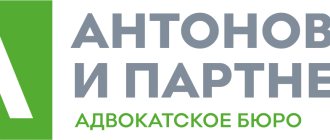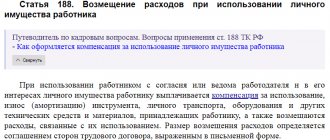Costs of victims in criminal cases are subject to compensation
In May of this year, the Constitutional Court of the Russian Federation promulgated Resolution No. 18-P, in which it recognized Part 3 of Article 131 of the Code of Criminal Procedure of the Russian Federation, Part 1 of Article 132 of the Code of Criminal Procedure of the Russian Federation and Clause 30 of the Regulation “On Compensation of Procedural Costs..”, approved by the Resolution Government of the Russian Federation No. 1240 of December 1, 2012, which do not comply with the basic law of the country. These provisions are devoted to the problem of reimbursement of the victim’s expenses for a representative (and not only).
The reason for checking these standards was the appeal of Elvira Yurovskikh, who had the status of a victim, who for several years could not obtain reimbursement for the costs of a representative in a criminal case. The criminal case itself was closed on non-rehabilitating grounds - due to the death of the suspect.
To reimburse the costs of the criminal case, the Yurovskikhs first filed a claim with the justice authority, where the Ministry of Finance of the Russian Federation was listed as the defendant. However, the judicial authority refused the woman’s request, advising her to submit a corresponding statement to the investigator. After lengthy proceedings, the investigator finally issued a decision to pay the victim 7.8 thousand rubles (at the rate of almost 1 thousand rubles for 1 day of a lawyer’s participation in investigative activities). The justice body overturned the decision, indicating that the investigator took into account only the participation of the lawyer in the investigative actions, but did not take into account the entire scope of legal assistance provided to the victim.
Taking these circumstances into account, the investigator decided to pay the Yurovskys 35 thousand rubles, but the court did not satisfy the victim’s request for indexation of this amount.
The Constitutional Court of the Russian Federation agreed with the victim’s arguments. He pointed out that the controversial norms are not sufficiently developed and do not allow the victim to effectively use his right to recover costs in a criminal case. In addition, there is no compensation indexing algorithm. The legislator must correct these shortcomings and bring these norms into conformity with the Constitution of the Russian Federation.
In the meantime, amendments on the recovery of the victim’s expenses for a representative in a criminal case completed at the pre-trial stage on a non-rehabilitating basis have not yet been introduced, the Constitutional Court of the Russian Federation called for adherence to three rules.
- The victim is reimbursed for all costs of a representative, confirmed by documents, if the citizen really needed certain services. In particular, costs incurred due to the need to appeal the decision to refuse to initiate a criminal case are subject to reimbursement.
- Expenses in a criminal case are reimbursed by the state, taking into account the level of inflation. In this case, the presence/absence of guilt of the officials conducting the preliminary investigation does not matter.
- If a citizen appeals an official’s decision to a justice agency, it is the court that must decide the need to pay compensation, as well as determine its amount.
In addition, the Constitutional Court of the Russian Federation made another important conclusion: it is impossible to draw an analogy between the cost of the services of a state lawyer and a lawyer by agreement. The cost of a lawyer’s services is determined by agreement with the client, and the Regulations approved by Government Decree No. 1240 are not applicable.
We note that on May 11, 2021, amendments to Article 132 of the Code of Criminal Procedure of the Russian Federation came into force, giving victims the right to recover procedural costs not only from convicted persons, but also from entities against whom criminal prosecution was completed on non-rehabilitative grounds (for example, due to the expiration of deadlines statute of limitations of criminal prosecution).
Of course, the above position of the Constitutional Court of the Russian Federation will significantly facilitate the procedure for compensation of procedural costs in a criminal case for victims. It will become easier to receive compensation for a ]criminal lawyer[/anchor], if only because the final word will be with the court, and not with the investigator.
Author of the material:
lawyer Sarkisov V.I.
The plenum of the RF Armed Forces approved one of the most long-awaited resolutions for the SOYU
Photo: supcourt.ru The Plenum of the Supreme Court of the Russian Federation adopted a resolution on the norms of civil procedural legislation regulating proceedings in the court of appeal. The document updates the judicial practice developed over the past eight years. The Supreme Court of the Russian Federation called the resolution perhaps the most long-awaited in the courts of general jurisdiction.
Until this time, courts and participants in legal proceedings were guided by the explanations of the resolution of the plenum of the Supreme Court of the Russian Federation, adopted in June 2012, almost immediately after the introduction of the appeal procedure for reviewing judicial decisions in courts of general jurisdiction. It is clear that during this period significant changes have occurred, including due to the reform of procedural legislation and the unification of courts of general jurisdiction and arbitration courts into a single system.
The draft resolution was considered at the plenum of the Supreme Court at the end of April and sent for revision. According to the chairman of the judicial staff of the Judicial Collegium for Civil Cases of the RF Armed Forces, Sergei Astashov, the adjustments made by the editorial commission were minimal and insignificant and more aimed at reducing the volume of the document and optimizing it.
Astashov called the resolution perhaps the most long-awaited in the courts of general jurisdiction:
“It brings together issues that relate to the appellate court, and issues that concern the courts of first instance, and issues that relate to the courts of the next cassation instance.
The resolution provides clarifications on cases of the most relevant and general nature, while the features of the appeal consideration of certain categories of cases, for example, class actions, will be explained in subsequent decisions of the plenums of the Armed Forces of the Russian Federation.
For the first time in 8 years, the RF Supreme Court updated appellate practice in civil cases
News04/06/2021
7685
Thus, the rights of persons who go to court are significantly expanded. In particular, the possibility is provided for these persons to enter into the process at the stage of appeal consideration of the case - for example, in cases where a citizen applied for appropriate assistance after the case was considered by the court of first instance.
Explanations are detailed regarding the requirements for compliance with the form and content of the appeal, presentation, the grounds for leaving them without action by the court and their subsequent return if the deficiencies are not eliminated within the period established by the court.
The attention of the courts is drawn to the inadmissibility of leaving an appeal without progress on formal grounds, due to minor grammatical or technical deficiencies that do not prevent its consideration by the court of appeal.
It is indicated that failure to pay the state duty or its payment in a smaller amount is not grounds for returning the case to the court of first instance. In this case, issues of collection of fees are resolved by the court of appeal based on the results of the consideration of the case, which meets the principle of procedural economy and compliance with reasonable time limits for consideration of the case.
Clear and specific explanations were given on the calculation of the period for an appeal and the new provisions of the law were taken into account that the periods calculated in days do not include weekends and non-working holidays. This was done taking into account constantly arising questions and discrepancies. The procedure for calculating the period for appeal in certain types of proceedings has also been clarified.
In addition, the resolution contains explanations that are important for practice on the distribution of legal costs after consideration of cases by the appellate court, on the revision of appeal rulings based on new and newly discovered circumstances, on the issuance of additional and particular rulings of the appellate court, as well as on the procedure for issuing writs of execution after consideration of the case by the appellate court.
The plenum of the Supreme Court of the Russian Federation also approved a resolution on the application by courts of the norms of civil procedural legislation governing proceedings in the cassation court. The document was prepared based on the goals of ensuring the stability of already established judicial practice.






